The Story
-
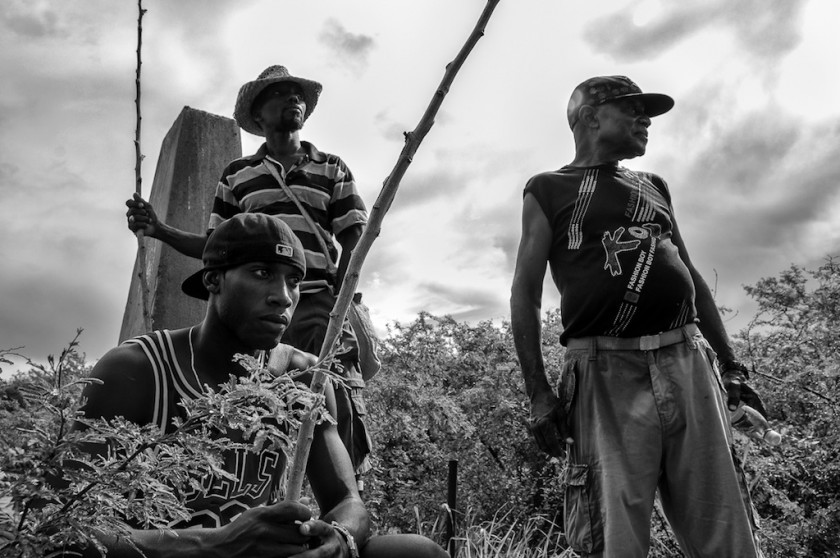
Yandrys, Alfredo and Cuco at the obelisk marking the site of Ingenio Santa Elena, where their ancestors were once enslaved.
Matanzas, Cuba. December 2011. -
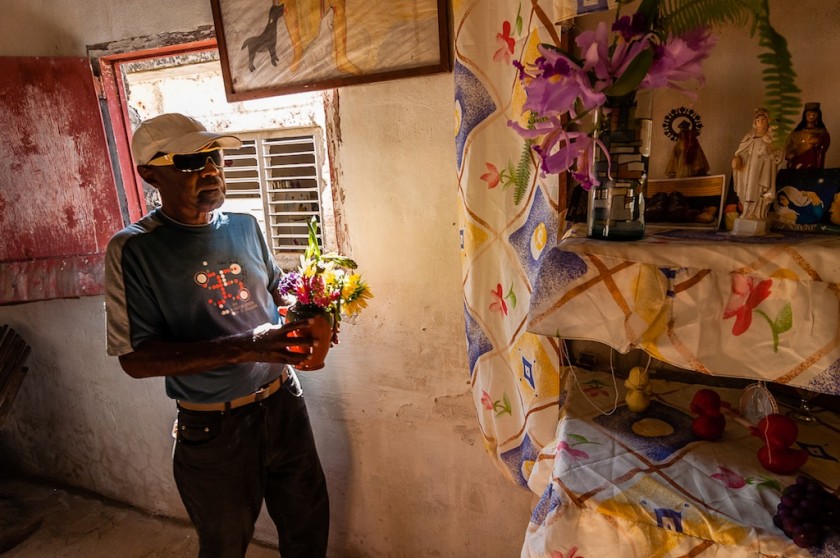
Cuco decorating the altar in the Gangá Temple.
Perico, Matanzas, Cuba. December 2012. -
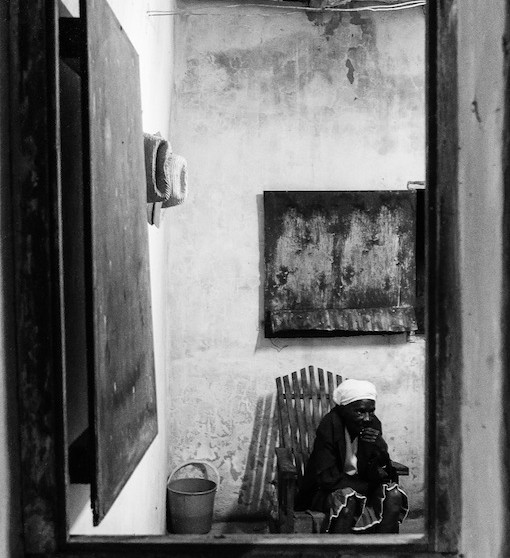
Piyuya in the Gangá temple.
Perico, Matanzas, Cuba. December 2011. -
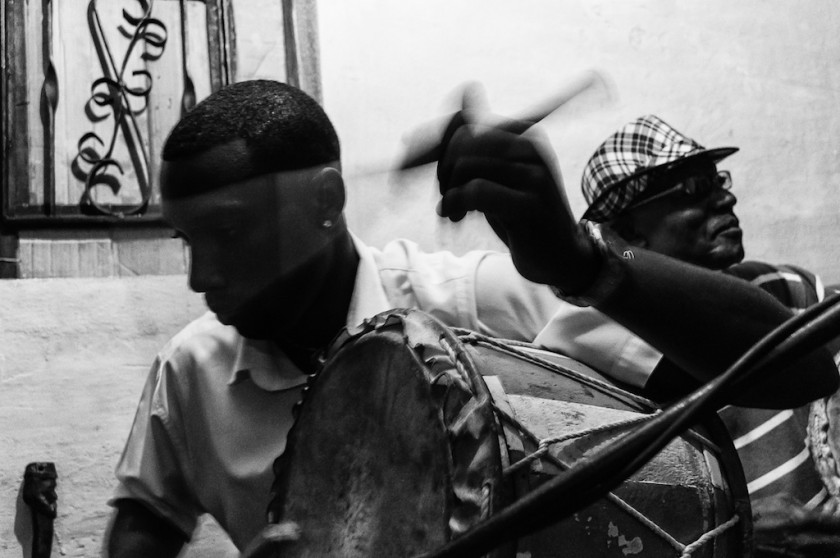
Yandrys and Cuco drumming during the San Lázaro celebration.
Perico, Matanzas, Cuba. December 2011. -
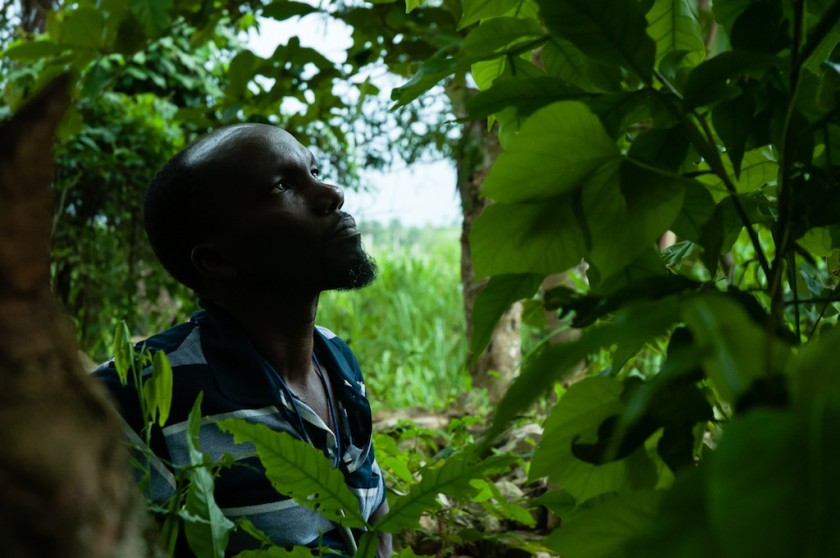
Alfredo “El Duque” Duquesne Mora.
Matanzas, Cuba. July 2012. -
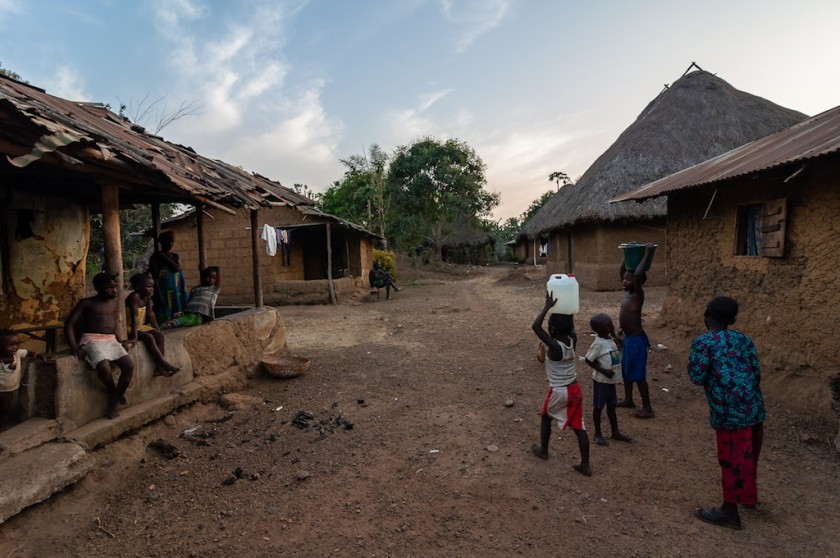
Afternoon in Mokpangumba.
Mokpangumba, Upper Banta Chiefdom, Sierra Leone. April 2013. -
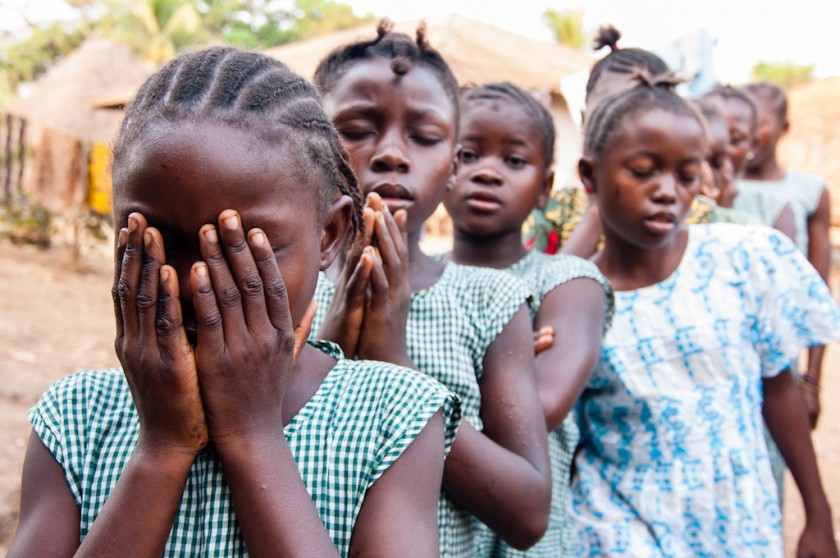
Children praying in front of the school.
Mokpangumba, Upper Banta Chiefdom, Sierra Leone. April 2013. -
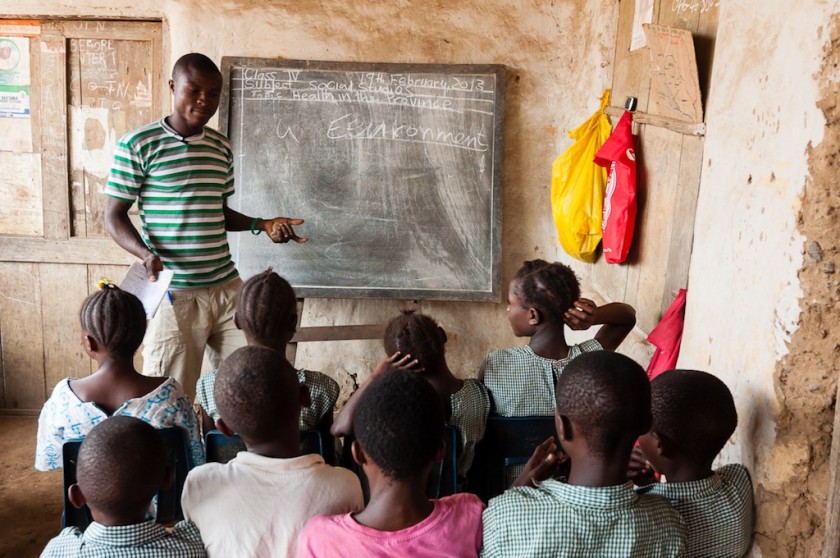
Solomon teaching at the village school.
Mokpangumba, Upper Banta Chiefdom, Sierra Leone. April 2013. -
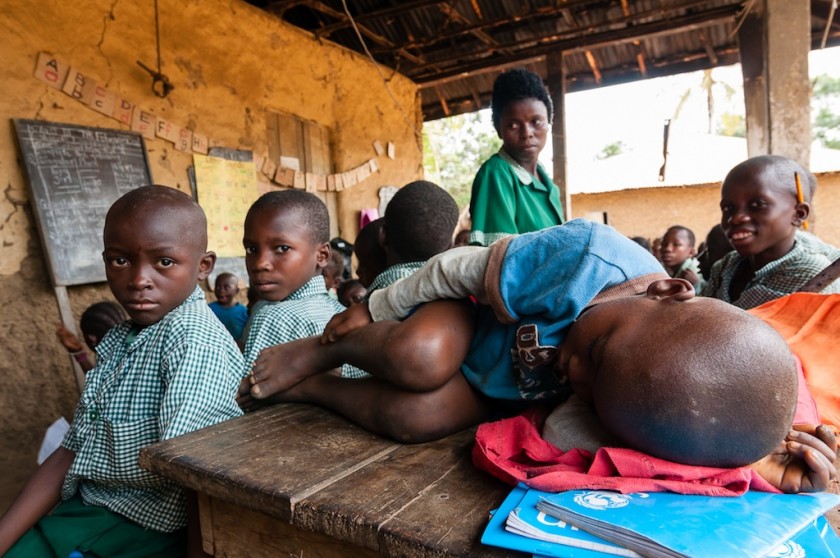
At Mokpangumba school.
Mokpangumba, Upper Banta Chiefdom, Sierra Leone. April 2013. -
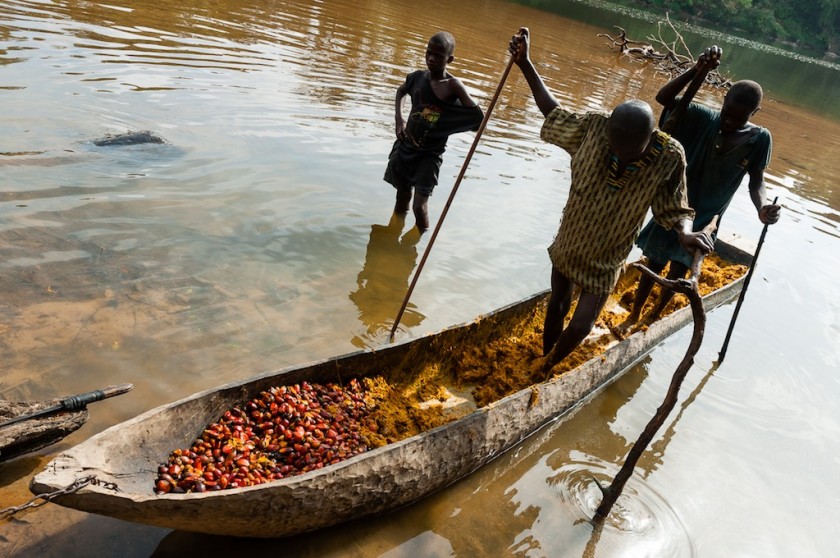
Kids making palm oil.
Mokpangumba, Upper Banta Chiefdom, Sierra Leone. April 2013. -
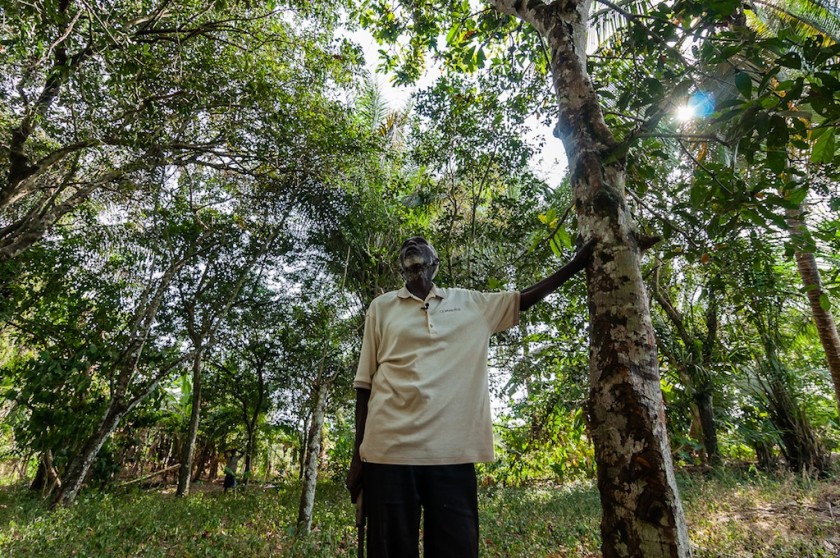
Pa Joe on his plantation.
Mokpangumba, Upper Banta Chiefdom, Sierra Leone. April 2013. -
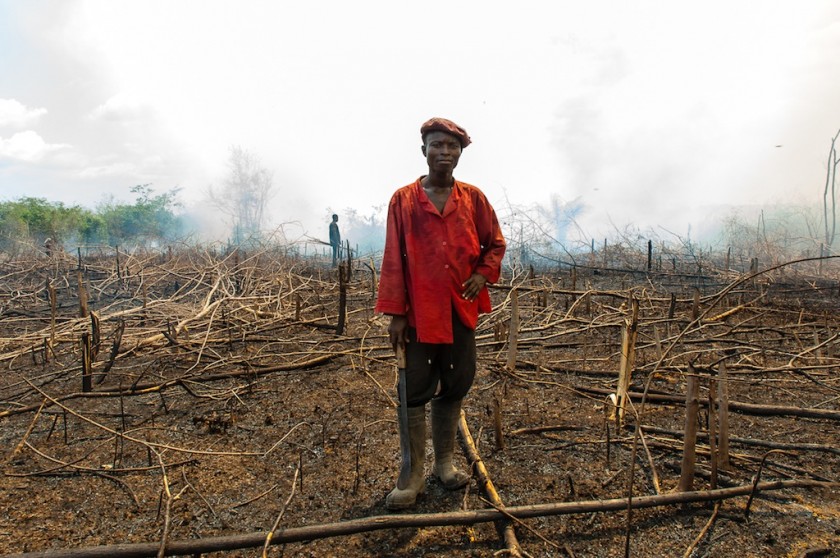
Augustine takes a break while burning the fields to prepare for crop planting.
Mokpangumba, Upper Banta Chiefdom, Sierra Leone. -
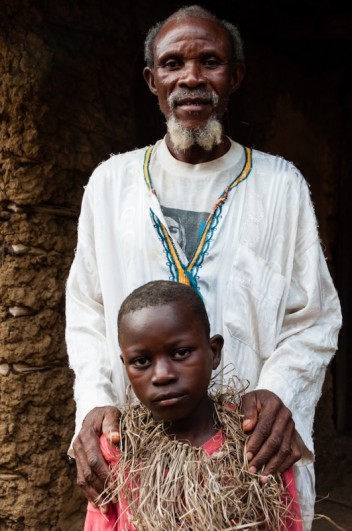
Chief Pokawa with his son Issa.
Mokpangumba, Upper Banta Chiefdom, Sierra Leone. April 2013. -
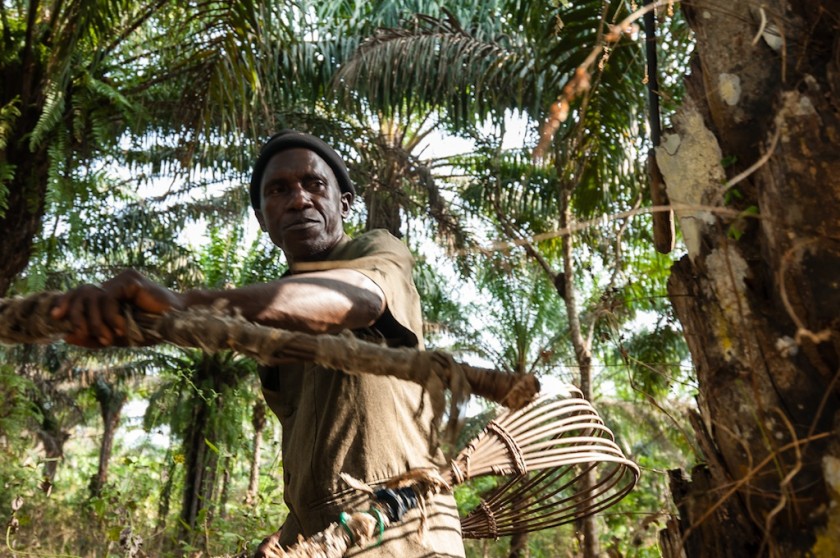
Baggie on his palm tree plantation.
Mokpangumba, Upper Banta Chiefdom, Sierra Leone. April 2013. -
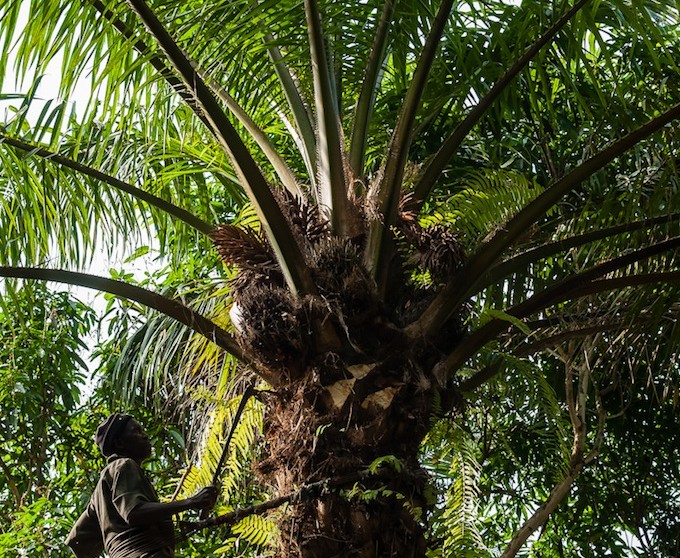
Baggie cuts down palm kernels on his plantation.
Mokpangumba, Upper Banta Chiefdom, Sierra Leone. April 2013. -
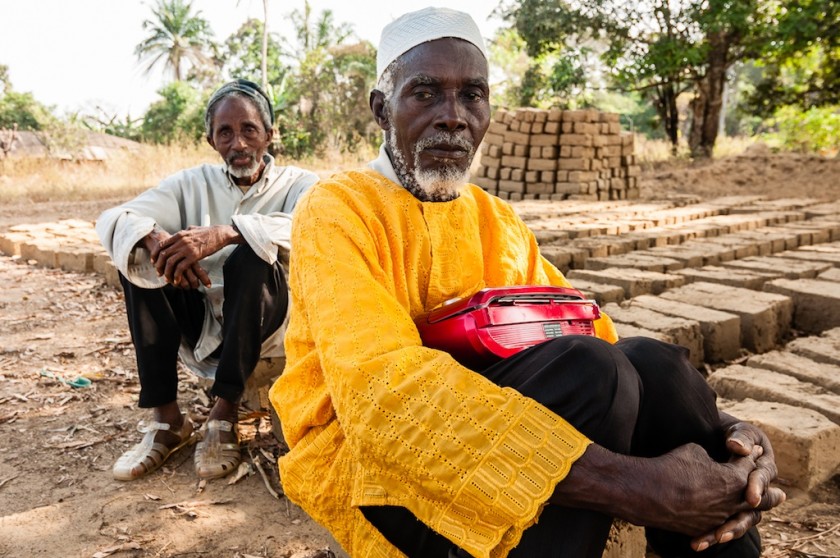
Pa Joe and Pa Tom (in the background) sit at the village entrance.
Mokpangumba, Upper Banta Chiefdom, Sierra Leone. April 2013. -
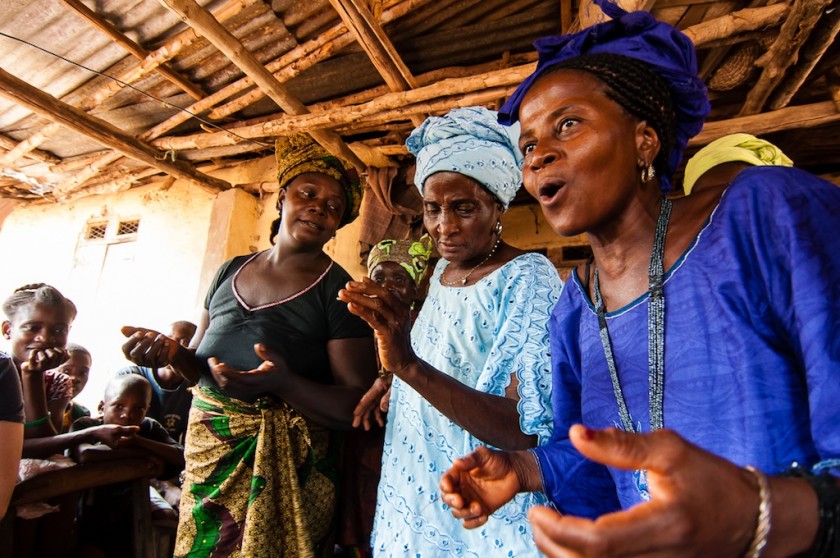
Mama Lucy (on the far right) sings with other Bom Sigie.
Mokunde, Upper Banta Chiefdom, Sierra Leone. April 2013. -
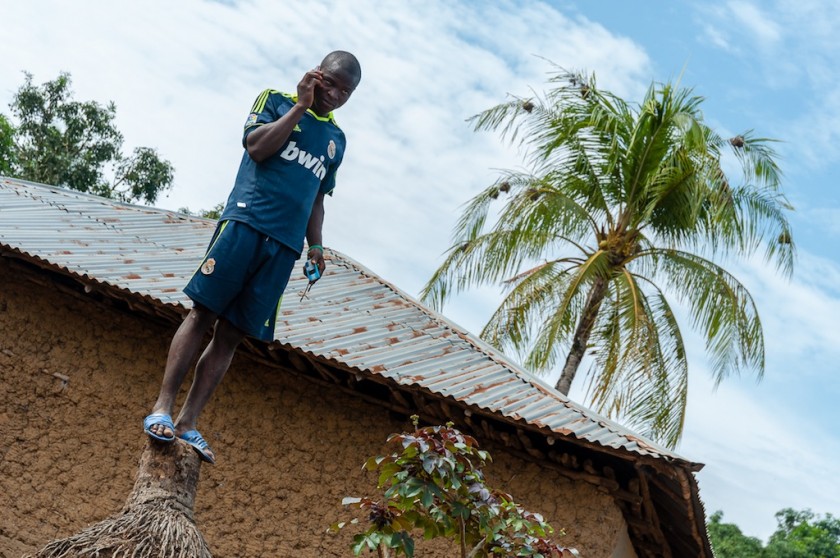
Solomon trying to contact the Cubans to check on their progress as they walk to Mokpangumba.
Mokpangumba, Upper Banta Chiefdom, Sierra Leone. April 2013. -
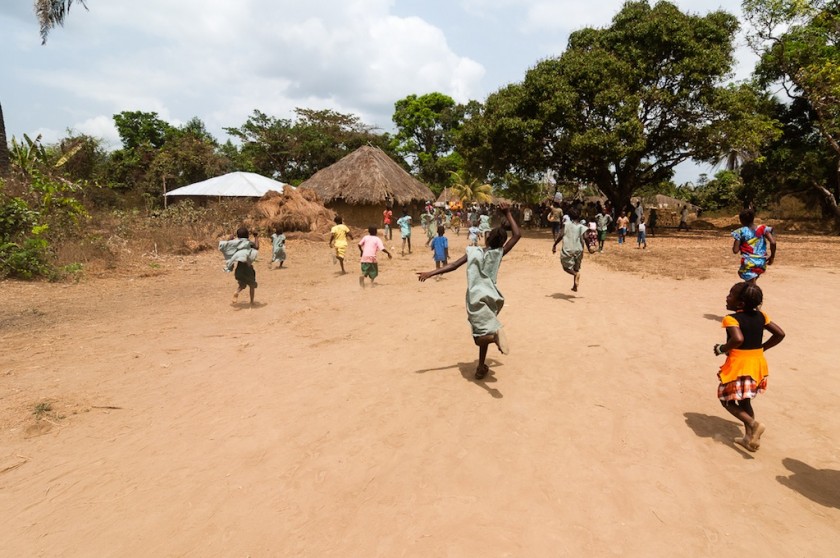
The kids, who had gone ahead to form an advance welcome party, run back to join the official welcome ceremony.
Mokpangumba, Upper Banta Chiefdom, Sierra Leone. April 2013. -
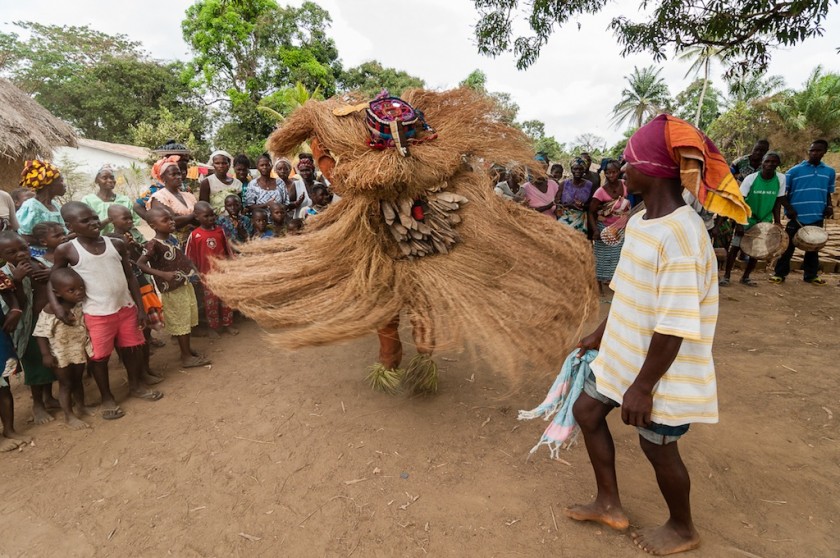
Goboi, the Poro society mask, dances for the Cubans at the welcome ceremony.
Mokpangumba, Upper Banta Chiefdom, Sierra Leone. April 2013. -
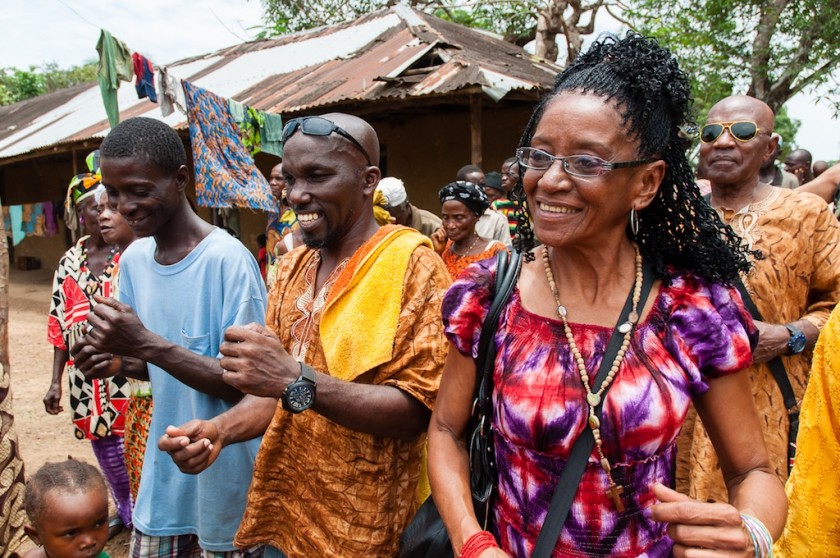
Alfredo, Elvira and Cuco (in the background) dance to the welcoming drums in Mukpangumba.
Mokpangumba, Upper Banta Chiefdom, Sierra Leone. April 2013. -
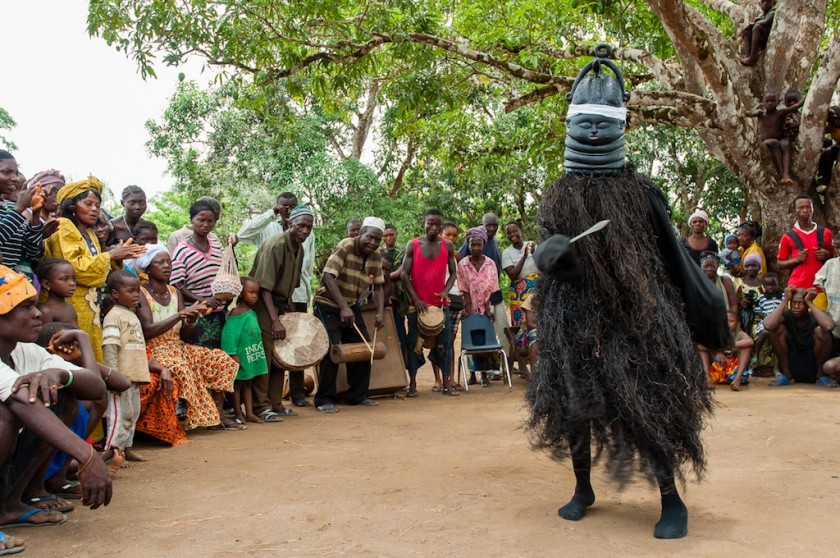
The Bundu mask dances in the welcome ceremony for the Cubans.
Mokpangumba, Upper Banta Chiefdom, Sierra Leone. April 2013. -
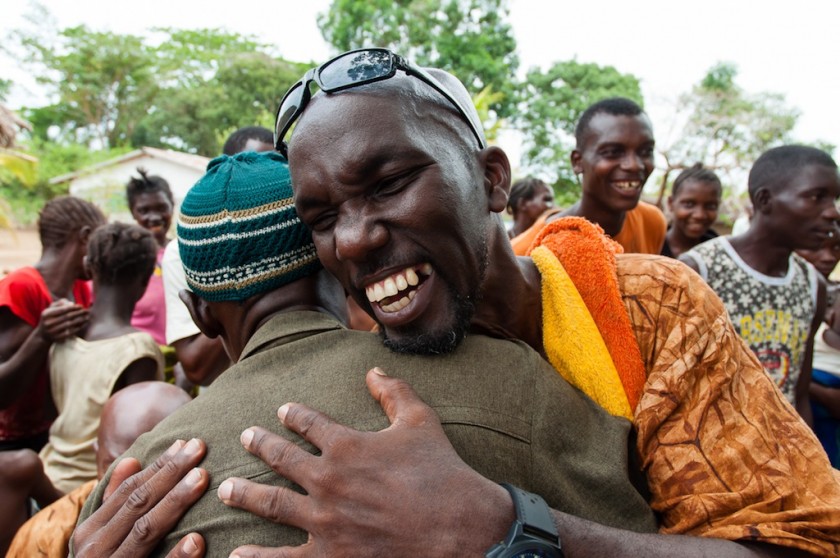
Alfredo and Baggie finally share a hug after having seen each other on film many times.
Mokpangumba, Upper Banta Chiefdom, Sierra Leone. April 2013. -
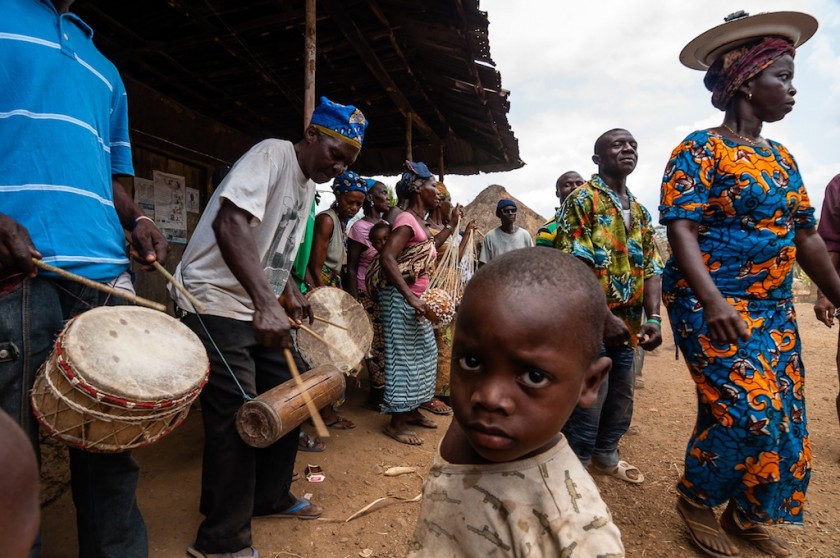
The whole village celebrates the return of their Cuban family.
Mokpangumba, Upper Banta Chiefdom, Sierra Leone. April 2013. -
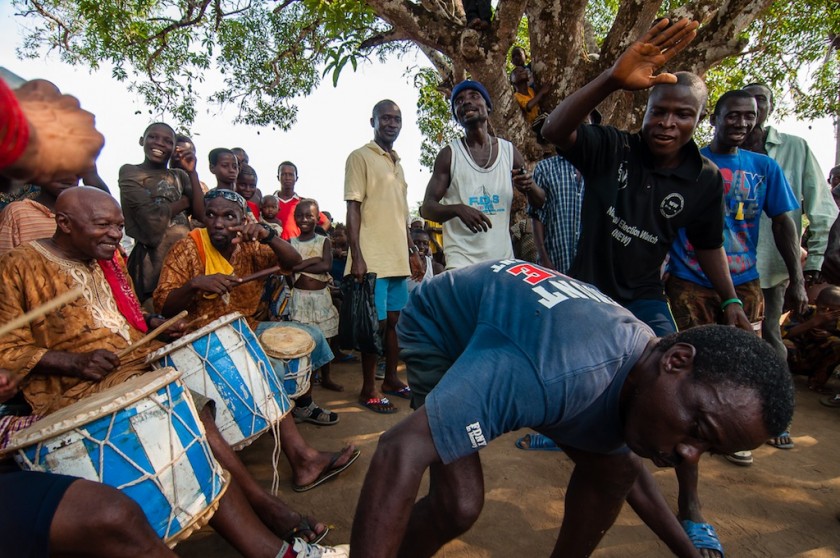
The group sings and drums for their African family during the afternoon welcome ceremony.
Mokpangumba, Upper Banta Chiefdom, Sierra Leone. April 2013. -
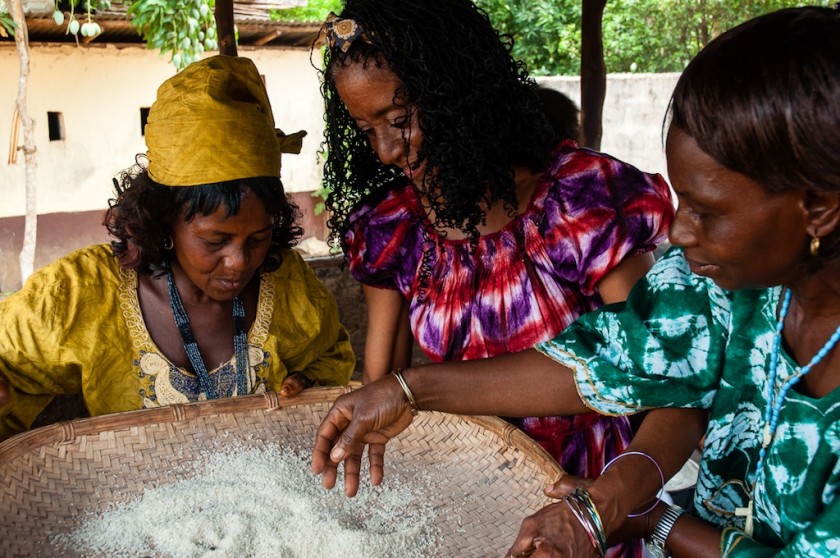
Elvira cooking with Mama Lucy and another local woman.
Mokpangumba, Upper Banta Chiefdom, Sierra Leone. April 2013. -
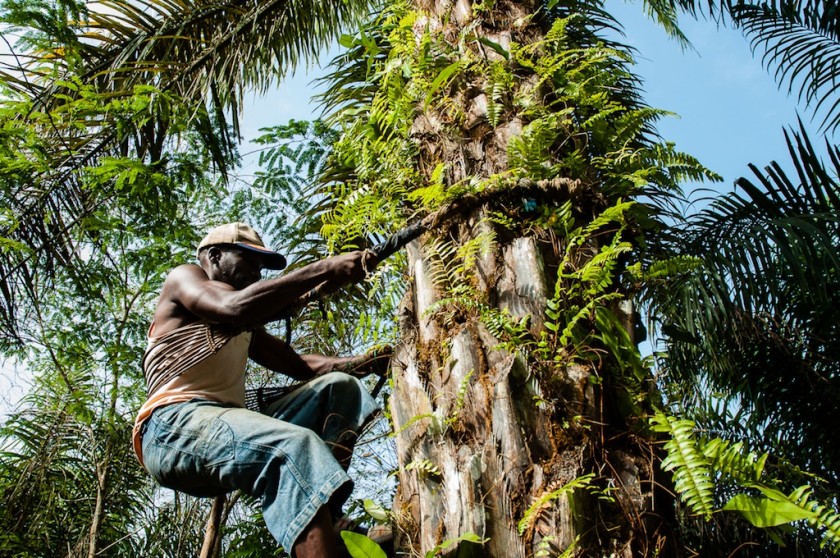
Alfredo tries his luck climbing a palm tree at Baggie’s farm.
Mokpangumba, Upper Banta Chiefdom, Sierra Leone. April 2013. -
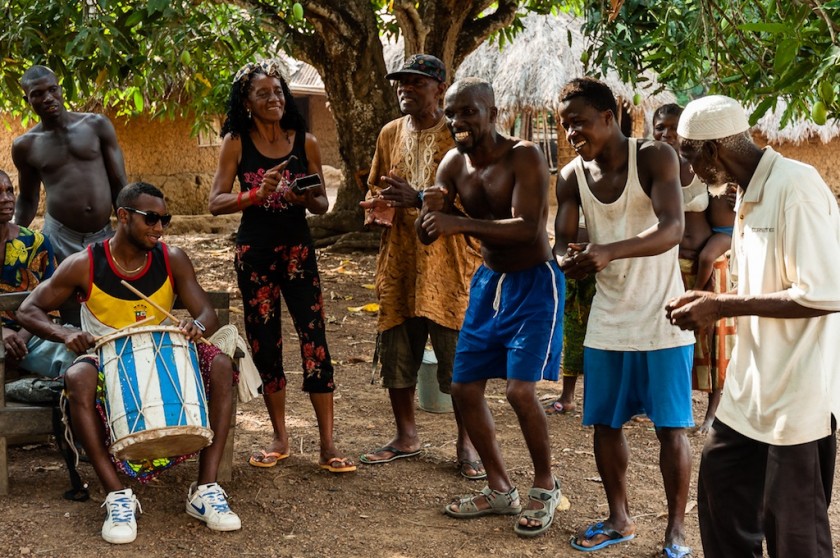
The group drums a Cuban rumba while Cuco and Alfredo dance with Pa Ali and a villager.
Mokpangumba, Upper Banta Chiefdom, Sierra Leone. April 2013. -
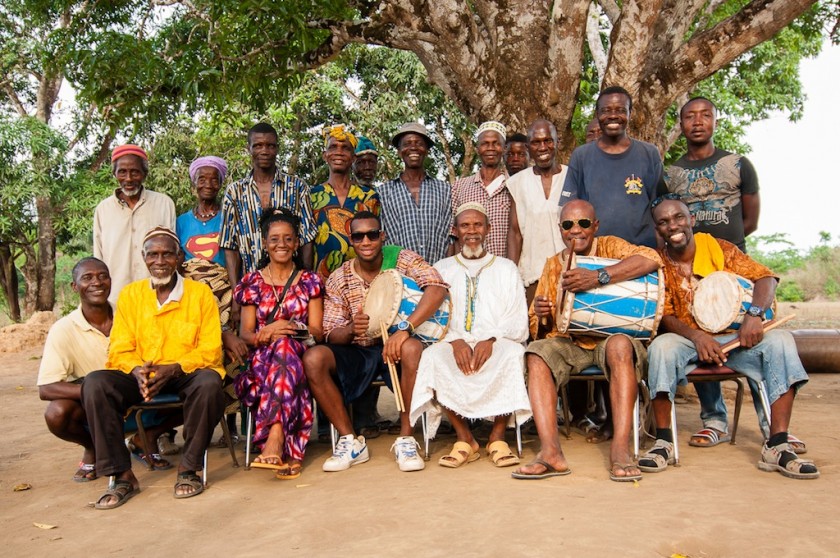
The group together with the village elders.
Mokpangumba, Upper Banta Chiefdom, Sierra Leone. April 2013.
All images © Unshackled MEDIA PTY. LTD.
THEY ARE WE is the story of a remarkable reunion, 170 or so years after a family was driven apart by the ravages of the transatlantic slave trade.
In Central Cuba, proud members of the Gangá-Longobá, a small Afro-Cuban ethnic group, have kept their unique heritage alive. Incredibly, through decades of brutal enslavement, independence wars, and then the denying of all religions after the revolution, they have retained a collection of distinct songs and dances that one of their ancestors brought from Africa as a slave. Each December 17th they still perform them at the San Lazaro ceremony.
After a chance discovery while working in West Africa, director Emma Christopher spent two years showing a film of the Gangá-Longobá songs and dances to several thousand people across Sierra Leone. Eventually, in an isolated village with no road access, one man looked at another in joy and wonder as he watched a recording of the Gangá-Longobá songs and said, “THEY ARE WE!” Then the villagers joined in with others of the Gangá-Longobá songs, still recognizing them clearly despite all the years of separation.
Returning to Cuba, Emma showed her findings to the Gangá-Longobá. “We are not so alone anymore”, said one of their number, woodcarver and artist Alfredo Duquesne. Later he would say that knowing where he came from “is divine.”
In early 2013, after the law changed allowing them to freely leave Cuba, a trip was at last made to visit Sierra Leone. It turned into a remarkable celebration, a rare recognition of the tenacity and resolve of one young girl who once made the awful journey from Africa to Cuba, but never let her memories of home die.
THEY ARE WE tells the story of the Gangá-Longobá and of the village their ancestor called home.
It is the story of how, just very occasionally, a family separated by the slave trade can reunite for the good of all.
